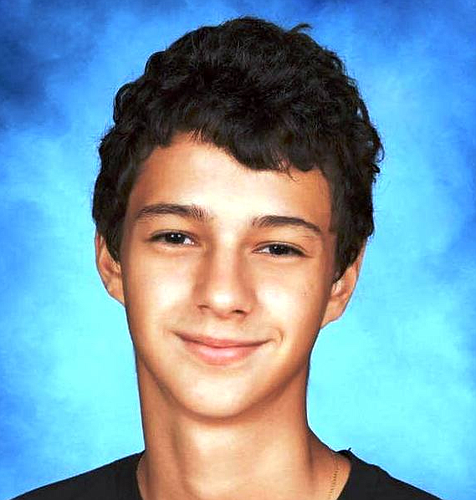- April 19, 2024
-
-
Loading

Loading

A Winter Park High School student’s memory and legacy lives on — in the form of a pulse from three organ donor recipients.
Roger Trindade — a student from Brazil in Winter Park High School’s International Baccalaureate Program — became a hero in the wake of tragedy, donating multiple organs to save three lives after of an incident in Winter Park’s Central Park last October took the teen’s life.
The 15-year-old was declared brain dead shortly after he was found lying unconscious following an altercation with a group of Winter Park students.
Adriana Thomé, Trindade’s mother who lives more than 3,000 miles away in Brazil, received the TransLife Medal of Honor on his behalf about a month ago.
The medal reads, “In their final hour, they gave a lifetime.”
“In the first place, I would like to have never received this medal,” Thomé said. “Roger was the light in my life, a smiling, always-happy boy who had a lot of respect for everyone and a huge heart. It was this huge heart that made me choose to donate an organ. I am sure that in addition to the organ donated, the person received love, affection, happiness and more.”
Thomé received hope there would be justice for her son last December, when three Winter Park students were arrested in connection with the incident.
One of the three boys will be sentenced July 7. The other two boys are expected to go through trial in August.
“I would very much like these people to spend a lot of time in jail,” Thomé said. “It does not bring Roger’s life back, but they have to serve as an example to others.
“Two things worry me,” she said. “One is that the parents of these children are directly responsible for what happened to my son. I educated my son to respect and preserve the people who were around him, I cannot understand how these parents are not responsible for the acts of their children. Another issue is my son took a punch and died, so ‘one punch can kill’ should be considered a weapon. These are my questions for politicians to question the laws, so that no mother has to cry over the death of her son in the future in this country.”
The image of Thomé’s son is permanently stopped in time — a boy slowly becoming a young man in the United States. She remembers his unique sense of humor, the sleight-of-hand card tricks he mastered with hours of practice, and how no one ever saw him upset or angry.
Thomé won’t have a chance to meet the recipients of the organs until at least a year after the donation, and only if the families wish to meet the family of the donor.
But she knows the organ donations would be exactly what Roger would have wanted.
His final gift was the gift of life.
“I’m sure he approved of our decision to continue living in someone, bringing comfort and happiness to other people,” Thomé said. “I’m very proud.”